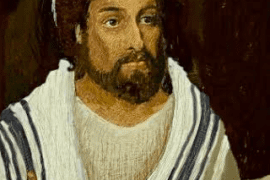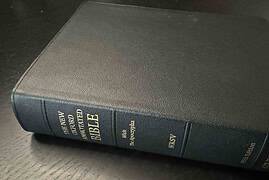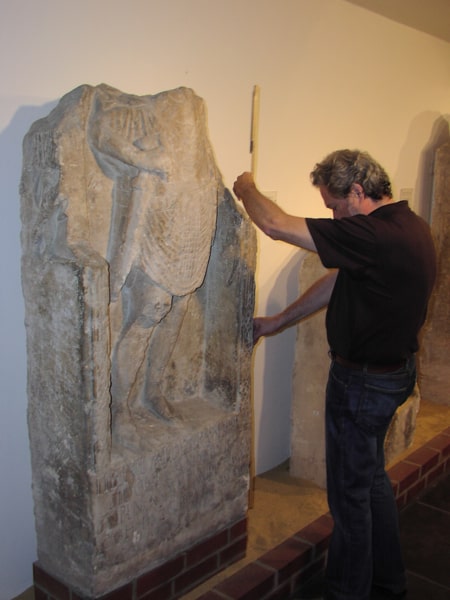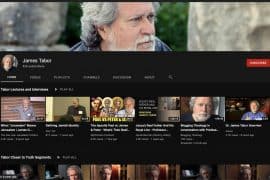One of the most controversial chapters in my book Paul and Jesus is the idea I present in chapter 9, “The Battle of the Apostles,” that despite the early attempts of Paul and the Jerusalem apostles to reconcile their differences in the end they broke with one another over sharp differences. I would argue that this fundamental issue, largely ignored by the Church–despite a split between “Ebionites” and “Orthodox” followers of Jesus in the 2nd and 3rd centuries–is the most decisive controversy in the early Jesus movement. How one views Christology, and the very existence of a “Christianity” separate from Judaism, turns on this issue.
Last week I sat down with Derek Lambert, who produces the viral Youtube channel MythVision to explore an extended set of topics and issues that I deal with in my various publications. I loved interviewing with Derek. He will be posting more of our interviews over the next few weeks. He is passionate about ideas, well informed, has an easy manner about him, and he lets his guests talk. He draws a huge and diverse audience, way beyond the typical reach of programs dealing with religion or theology. Check out his Youtube channel. I think my readers will find much of interest and extended interviews with some of the leading scholars in our field. Derek posted the interview on Sunday and it already has over over 8500 views. You can watch it on Youtube here:
One of the most controversial chapters in my book Paul and Jesus is the idea I present in chapter 9, “The Battle of the Apostles,” that despite the early attempts of Paul and the Jerusalem apostles to reconcile their differences in the end they broke with one another over sharp differences. As early as the letter of Galatians Paul makes it clear that these “so called pillars of the church”–referring by name to James the brother of Jesus, Peter, and John–meant nothing to him, in terms of vouching for, or certifying, the authenticity of his revelations from Jesus or his “gospel” as he called it. The book of Acts, written a generation later, tries to smooth over the tension, presenting a picture of harmony between Paul and Peter (see Acts 15), but Galatians 2 tells an entirely different story. In the end, as is plain from reading between the lines in Acts 21, when Paul makes his last visit to Jerusalem, that the underlying tension between Paul and James is irreconcilable–despite the author’s attempt to mute Paul (notice, he says nothing in reply to James!) and present a shaky agreement between them.
At issue were two bones of contention. To what degree was Paul’s claim to be a kind of “13th” apostle on a par with the authority of James and the Twelve–who had been directly appointed by Jesus? Do Jews need to remain fully Torah observant once they have come to faith in Jesus as the Christ? I believe, with the oft maligned F. C. Baur, that there was a decisive break between them and that in the end Paul went his own independent way. The strongest witness to this break in the New Testament is the fragment we now find embedded in 2 Corinthians 10-13. Paul presents his most passionate defense of his authority based on his revelations from Jesus and his mystical experiences. He pulls no punches and at times he seems to be shouting out his arguments at breakneck speed with a strident and emotional tone. In my recent book, Paul’s Ascent to Paradise: The Apostolic Message and Mission of Paul in the Light of his Mystical Experiences, I further explore the underpinnings of his extraordinary claims.









Comments are closed.